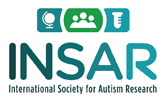
Preventing, reducing, and improving interactions between autistic individuals and the criminal justice system are urgent research and policy priorities. Research should guide evidence-based programs and policies that limit unnecessary interactions between autistic individuals and the criminal justice system and address documented high rates of victimization among autistic individuals. A diverse team of autistics, family members, researchers, criminal justice system professionals, and policymakers formed the Global Autism and Criminal Justice Consortium to advance policy recommendations that span the entirety of the criminal justice system, which is often disconnected, using an adapted version of the Sequential Intercept Model (SIM). The revised SIM, displayed below, illustrates a cyclical process for how autistic individuals as victims and offenders interact with the various steps of the criminal justice system. Arrows at each Intercept point back to the community to illustrate exit ramps, or areas for diversion out of the justice system.
Please see the Info-graphic at https://cdn.ymaws.com/www.autism-insar.org/resource/resmgr/docs/2022_CJ_INSAR_Policy_Brief.pdf
Editor: While Australia's injustice system is unlikely to take much notice of information like this, people should be aware of the issues raised and methods described as they may be able to influence positively the administration of the law.
| Attachment | Size |
|---|---|
| 2022_CJ_INSAR_Policy_Brief.pdf (1.35 MB) | 1.35 MB |